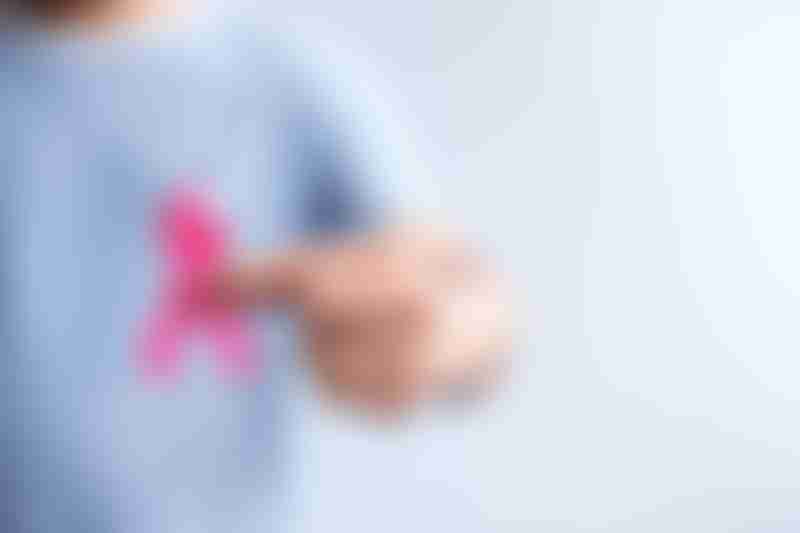Diagnosing Breast Cancer in Men

Source: Shutterstock
Being aware of breast cancer in men
Breast cancer is widely known as a significant health issue affecting women, but it is crucial to remember that men can also develop breast cancer. While the average risk of breast cancer in men is about 1 in 726, it can be higher especially in individuals who have genetic mutations that predispose them to breast cancer (for example, mutations in the BRCA genes). Though rare, male breast cancer deserves attention and proper awareness. Early detection and timely treatment are vital to improving survival rates and quality of life for male breast cancer patients. Men should not dismiss this potential health issue.
Methods to diagnose breast cancer in men
Diagnosis of breast cancer in men may involve a few tests and processes.
Clinical examination
Male breast cancer diagnosis often starts with a clinical examination by a healthcare professional. They will inspect the breasts and surrounding areas for any lumps, skin changes, or other abnormalities. They will also check the lymph nodes under the arms (axillary nodes) for signs of enlargement, which can indicate cancer spread.
Imaging tests
If your healthcare professional discovers a suspicious abnormality, they may recommend imaging tests to be performed to evaluate the breast tissue further. Common imaging tests to diagnose male breast cancer are:
- Diagnostic mammography
A diagnostic mammogram is an X-ray of the breast tissue in the presence of breast abnormalities or unusual symptoms. While mammograms are more commonly used for breast cancer screening in females, they can also be helpful in detecting breast abnormalities in males. The mammography procedure for males is similar to that for females. Fortunately, mammography tends to be more accurate and effective for males due to the lack of dense breasts and common benign breast changes that may affect the test results. Mammography is very accurate and has a sensitivity of 92% and a specificity of 90% for detecting breast cancer. However, this method of diagnosis may be limited at times due to the smaller size and volume of male breasts. In these cases, other forms of imaging, such as a breast ultrasound, may be used instead.
- Breast ultrasound
A breast ultrasound is an imaging test that uses high-frequency sound waves to create images (ultrasonography) of the inside of the breast. It can help distinguish between solid masses (which may be cancerous) and fluid-filled cysts (usually non-cancerous).
Biopsy
If an abnormality suspicious for cancer is detected during the clinical examination or imaging tests, a biopsy is performed to confirm the presence of cancer. During a biopsy, a small sample of breast tissue is taken and examined under a microscope by a pathologist. There are different types of biopsies, including:
- Fine Needle Aspiration (FNA)
A thin needle is used to extract cells or fluid from the breast lump or lymph node for examination.
- Core Needle Biopsy
A slightly larger needle is used to remove a small core of tissue from the breast lump.
- Surgical Biopsy
In some cases, a surgical procedure may be necessary to remove a larger sample of tissue for examination. Fortunately, most breast cancers can be diagnosed with a needle biopsy.
- Lymph node biopsy
If a lymph node under the arm is enlarged on physical exam or imaging, the doctor may need to do a biopsy of the lymph node(s) under the arm (usually done as an FNA) to check if the cancer has spread there.
Overcoming the fear of getting tested for breast cancer
Undergoing the physical examination, imaging and invasive procedures to confirm the diagnosis of breast cancer can be a confusing and unexpected journey. The societal perception that breast cancer primarily affects women may add to the sense of isolation. However, early detection of male breast cancer is crucial in ensuring the best possible outcomes. It's important to remember that you are not alone. Seeking emotional support from loved ones, joining support groups, or connecting with organizations specializing in male breast cancer can provide a valuable sense of community and understanding. Embracing self-care, focusing on mental well-being, and allowing yourself to express and process your emotions can help navigate the emotional aspects of this journey, fostering resilience and a sense of hope for the future. Remember, reaching out for support is a sign of strength, and resources are available to support you through every step of your emotional and physical healing process.